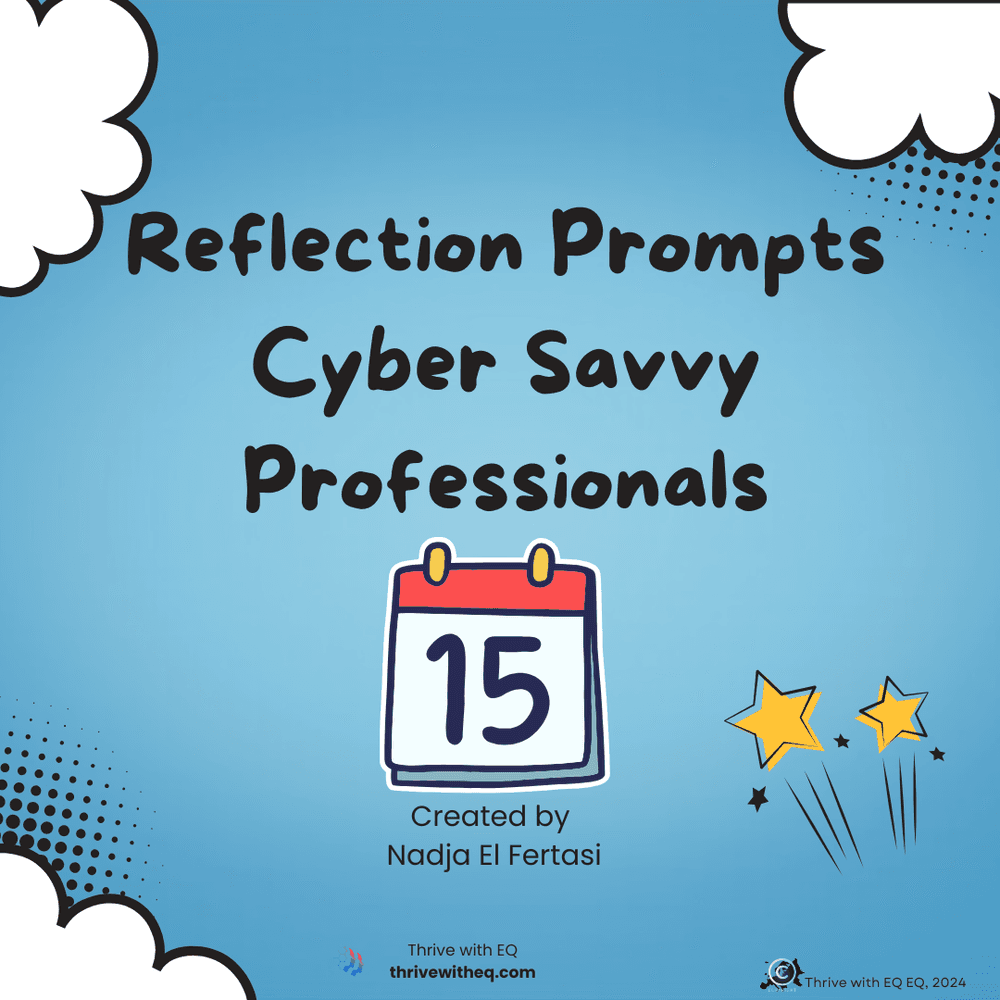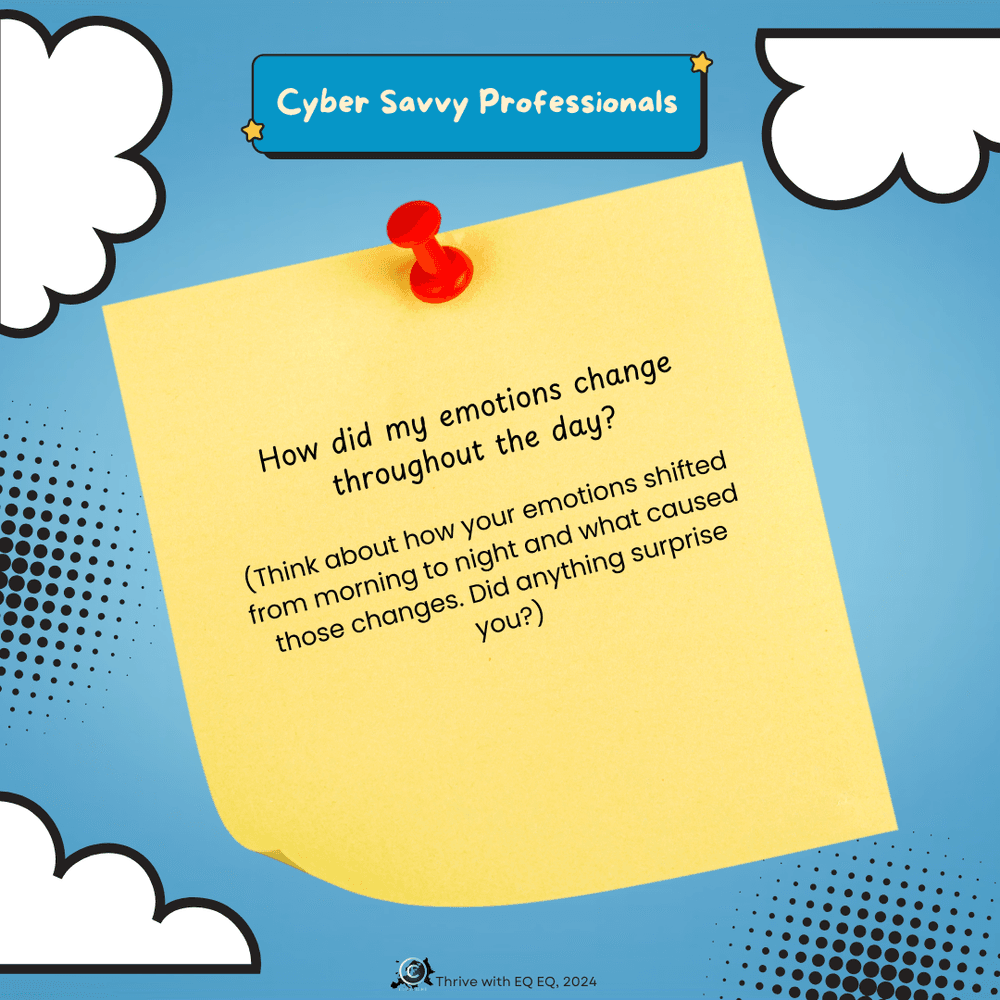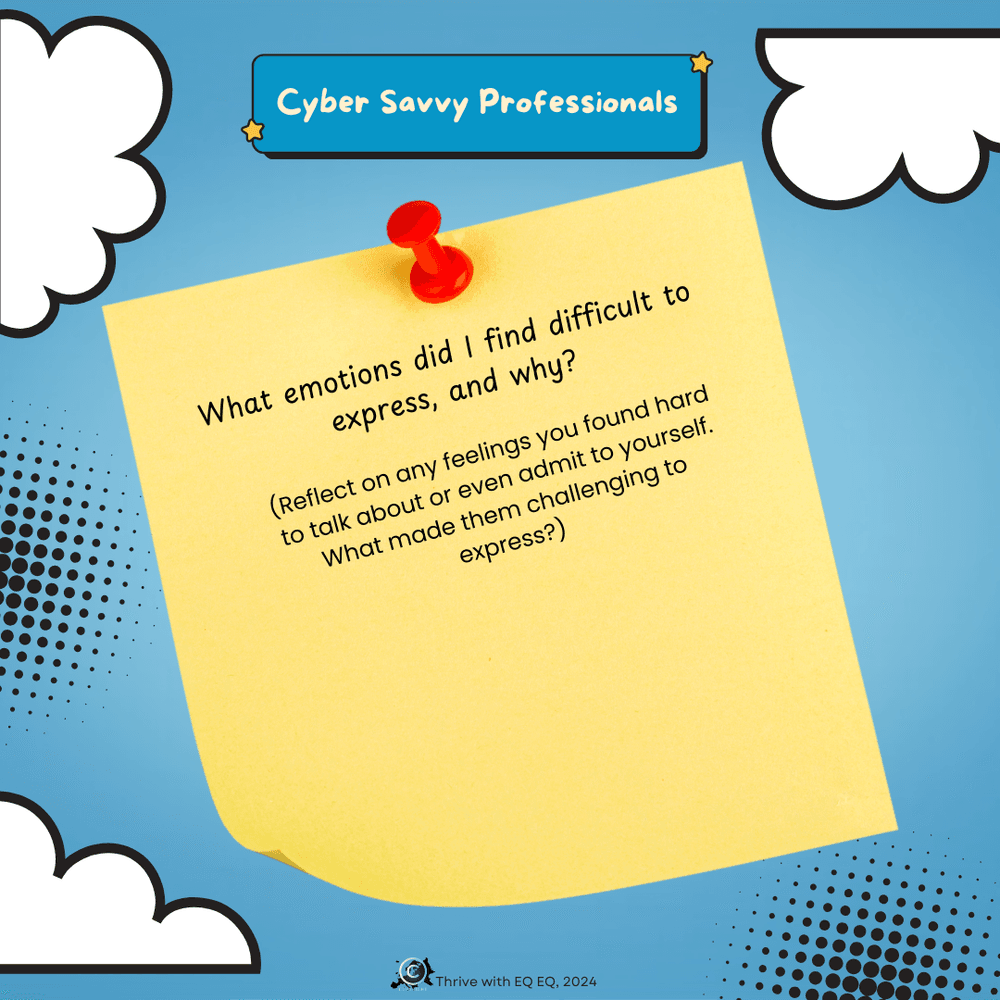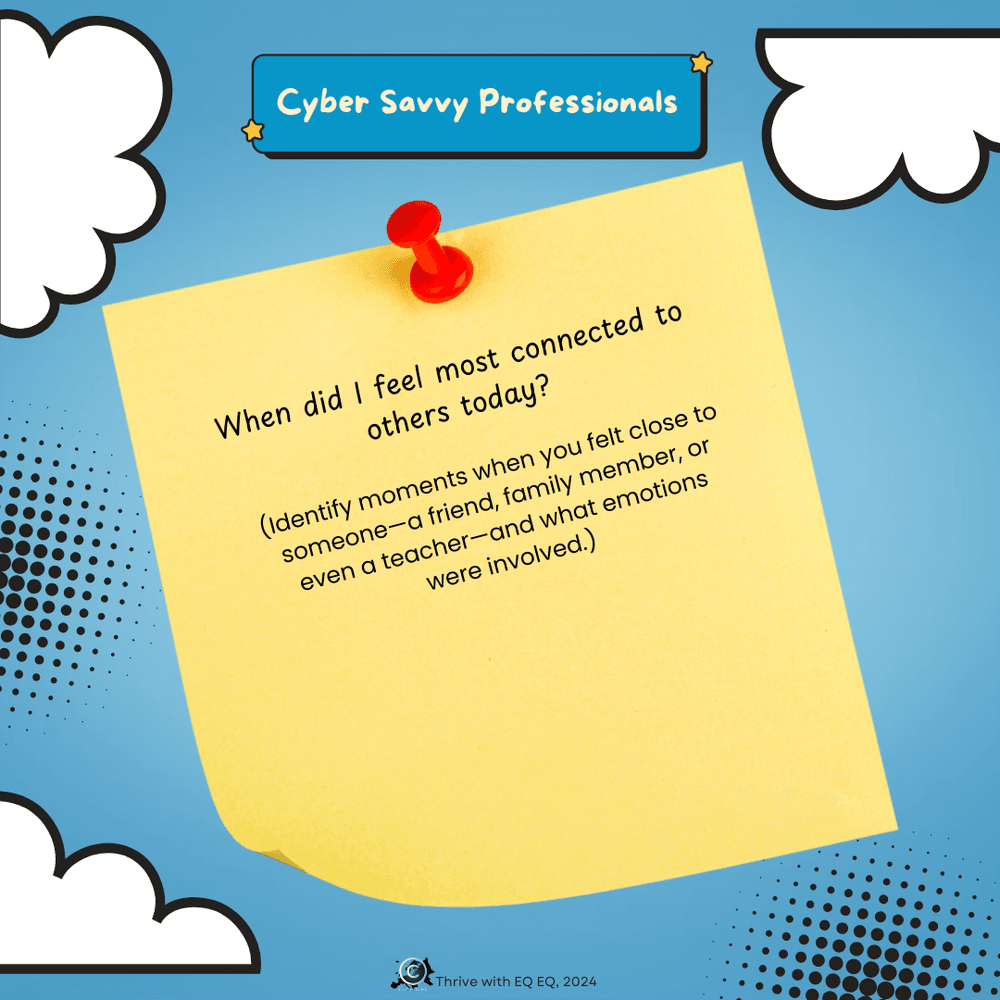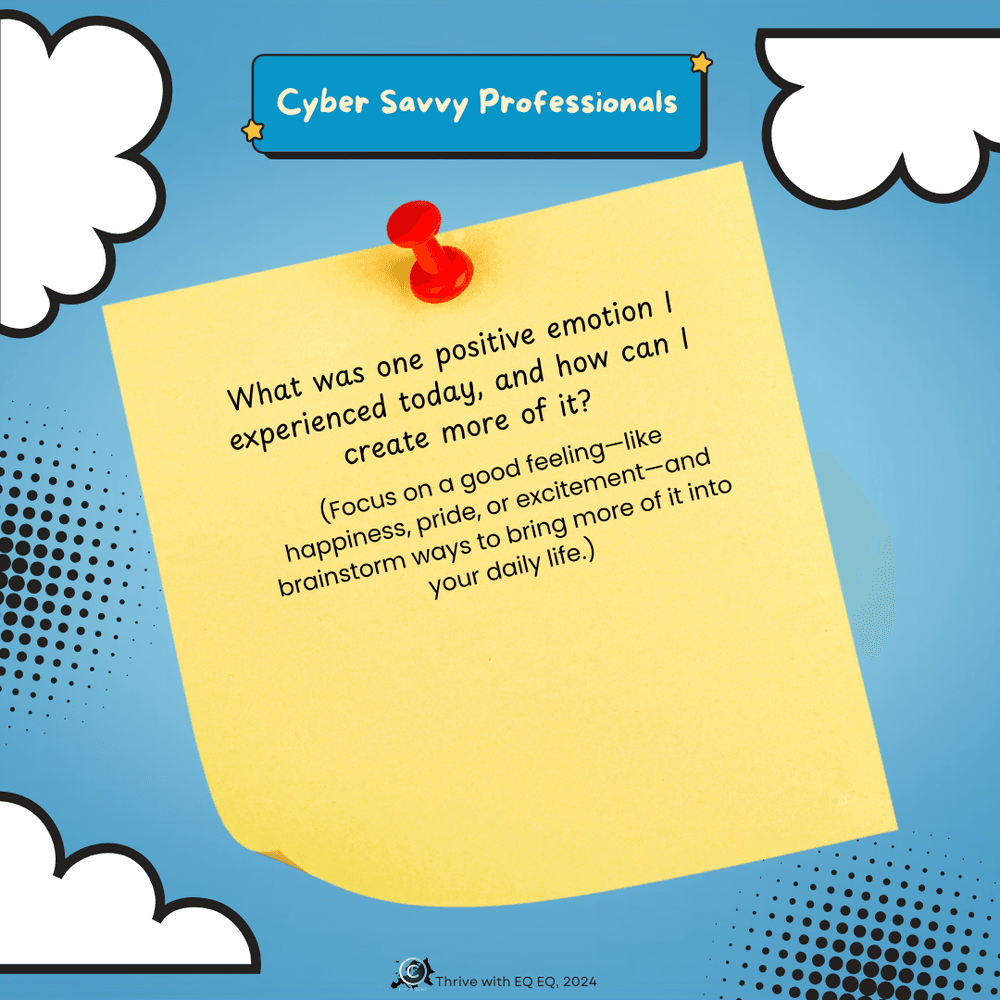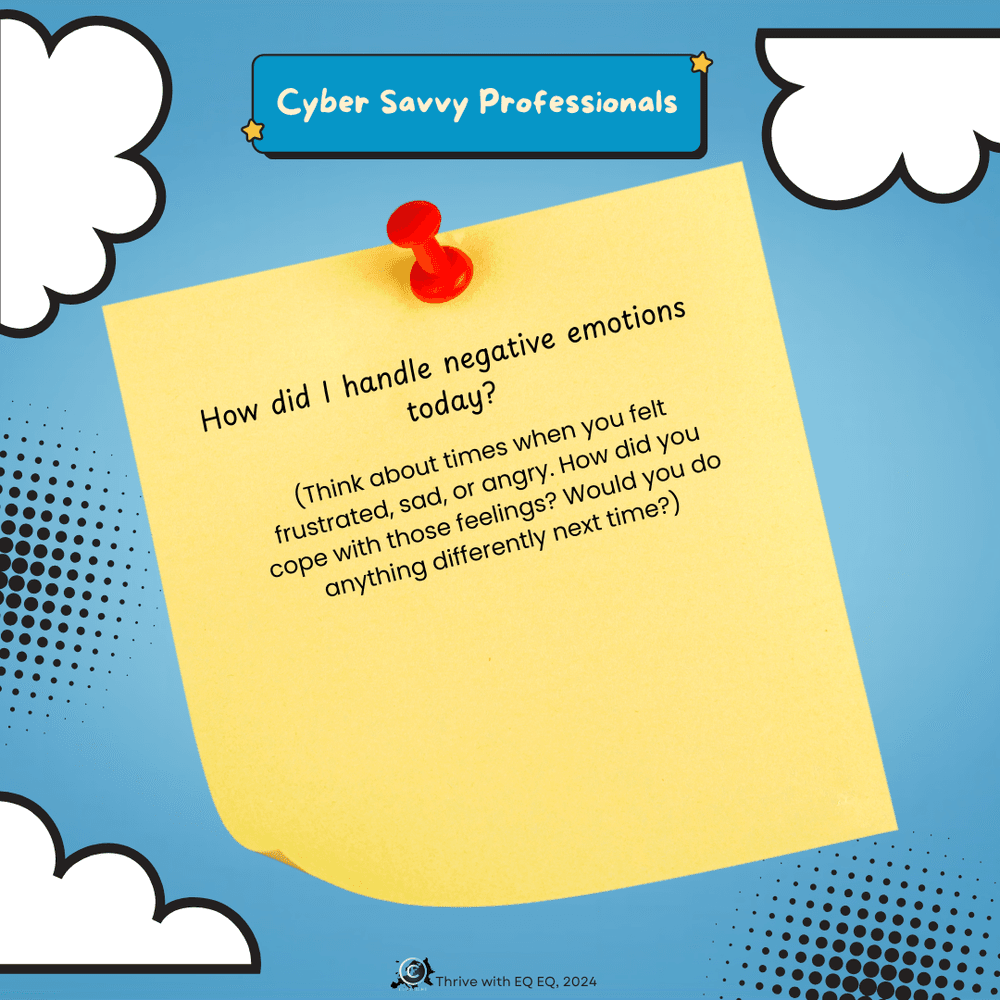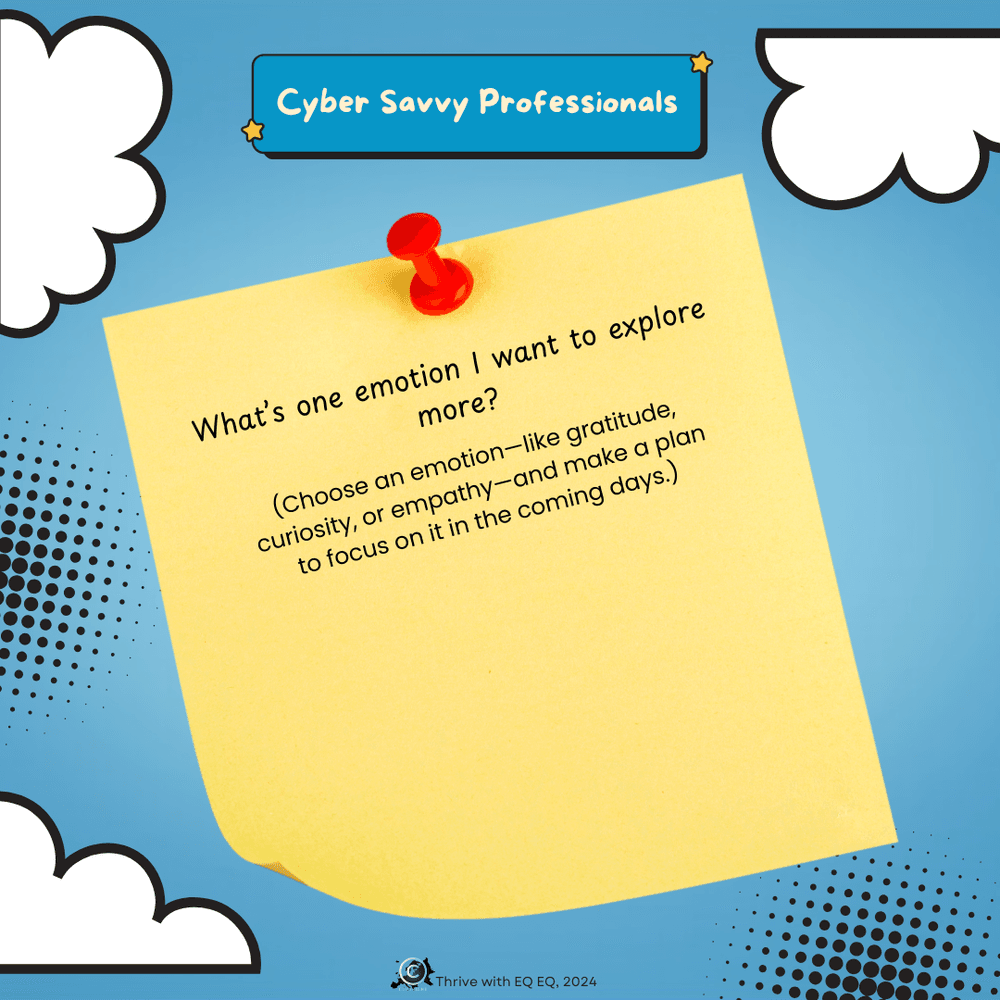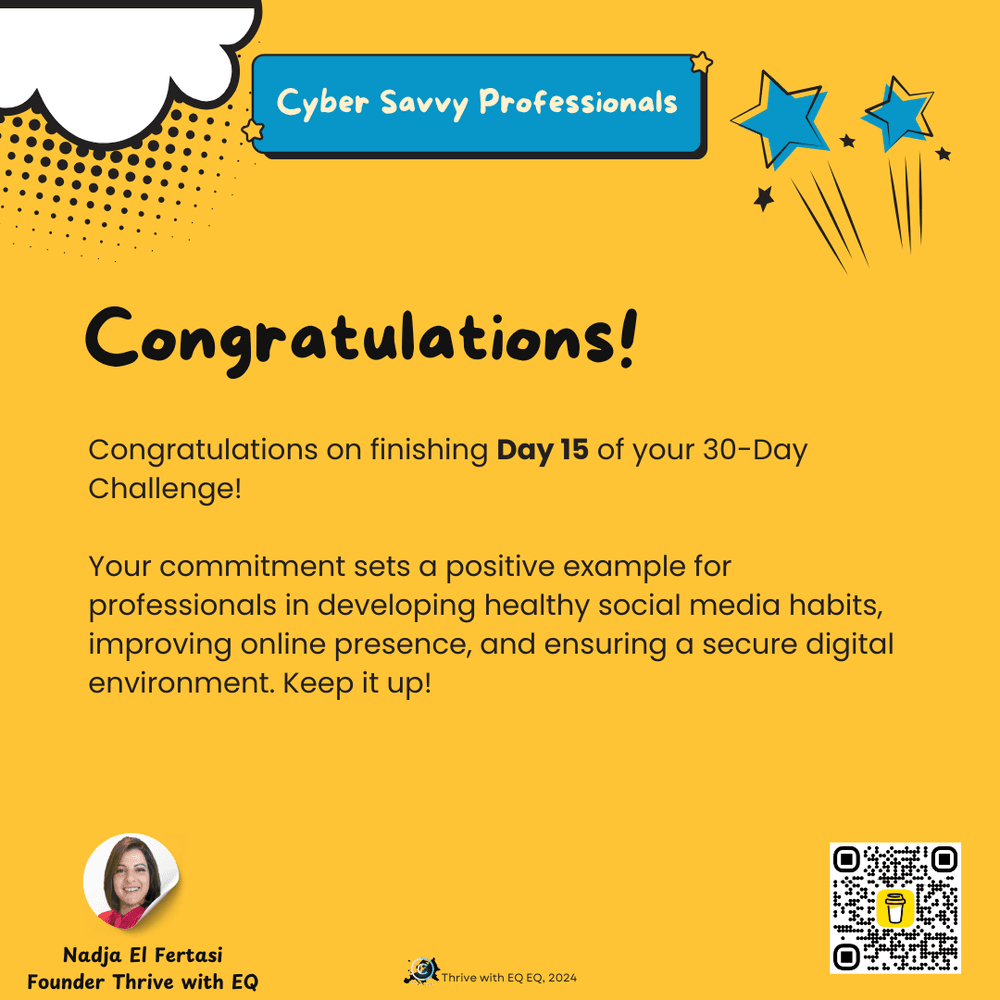Welcome to Day 15 of your 30-Day Challenge focused on building emotional firewalls in your professional life!
Today marks the halfway point of our journey, and it’s an ideal time to explore a critical concept for both personal and professional success: emotional intelligence.
What is Emotional Intelligence?
Emotional intelligence (EQ) is the ability to recognize, understand, and manage your own emotions while also being attuned to the emotions of others. It’s a crucial skill that significantly impacts your ability to build strong relationships, make informed decisions, and navigate the complexities of the workplace. Whether you’re leading a team, collaborating with colleagues, or managing clients, high emotional intelligence is essential for achieving success and maintaining healthy professional relationships.
EQ, which stands for Emotional Quotient, is used to measure emotional intelligence. These terms are often used interchangeably. Throughout your journey, I'll refer to EQ as emotional intelligence.
The Core Components of Emotional Intelligence Model:
1. Self-Perception: The foundation of emotional intelligence, self-perception involves recognizing and understanding your emotions. It includes accurate self-awareness, self-regard, and understanding your strengths and areas for improvement. This self-knowledge is key to building confidence and making informed decisions.
2. Self-Expression: This is about effectively expressing your emotions. It involves being open, honest, and assertive in communication, while maintaining emotional independence. In the workplace, self-expression helps in articulating ideas, setting boundaries, and engaging in productive dialogue.
3. Interpersonal Relationships: The ability to develop and sustain positive relationships with others is vital in any professional setting. This includes empathy, active listening, and collaboration. High EQ fosters trust, improves teamwork, and enhances leadership effectiveness.
4. Decision Making: Using emotional information to guide decisions is a hallmark of emotional intelligence. This includes impulse control, reality testing, and problem-solving. Making decisions with a balanced view of both logic and emotion leads to better outcomes and more sustainable solutions.
5. Stress Management: The workplace is full of stressors, from tight deadlines to interpersonal conflicts. Managing stress effectively requires adaptability, maintaining an optimistic outlook, and staying calm under pressure. High EQ enables you to navigate stress without letting it negatively impact your performance or relationships.
Applying Emotional Intelligence in the Workplace
Emotional intelligence isn’t just a personal skill—it’s integral to professional success. Whether you’re interacting with clients, leading a team, or managing your career, high EQ helps you connect with others, navigate challenges, and make informed decisions. By focusing on these core components, you can enhance your professional relationships and improve your ability to handle workplace dynamics.
Identifying Areas for Growth
Take a moment to reflect on your strengths and areas for improvement in emotional intelligence. Maybe you excel in empathy but need to work on stress management, or perhaps you’re great at self-perception but could improve in decision-making under pressure. Identifying these areas will help you focus your efforts on continuous growth and development.
Action Item for This Week:
Choose one component of emotional intelligence to focus on improving this week. Whether it’s enhancing your empathy, practicing better stress management, or improving your decision-making process, commit to developing this skill in your daily professional interactions.
By understanding and applying the principles of emotional intelligence, you’re laying a strong foundation for both personal growth and professional success. As we continue this challenge, these skills will become essential tools in your emotional resilience toolkit, helping you navigate your career with confidence and care.
See you tomorrow for Day 16 of the Emotional Firewalls Challenge!

